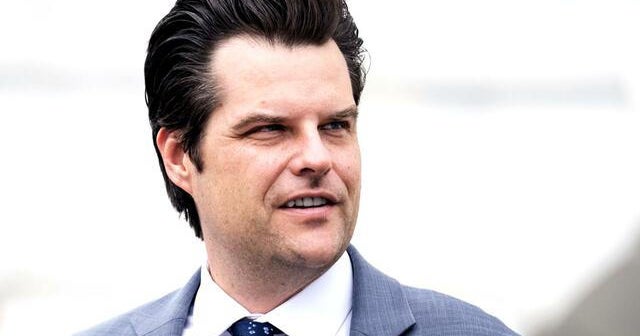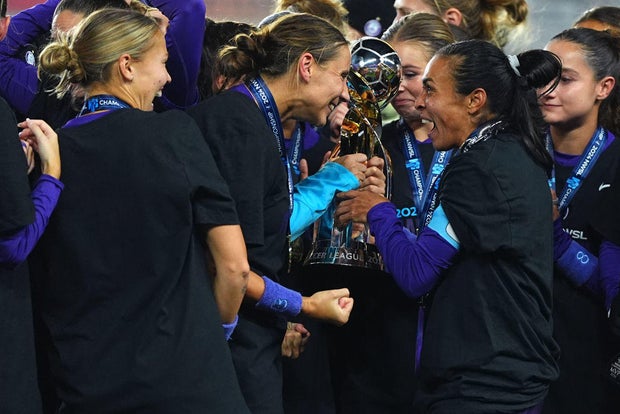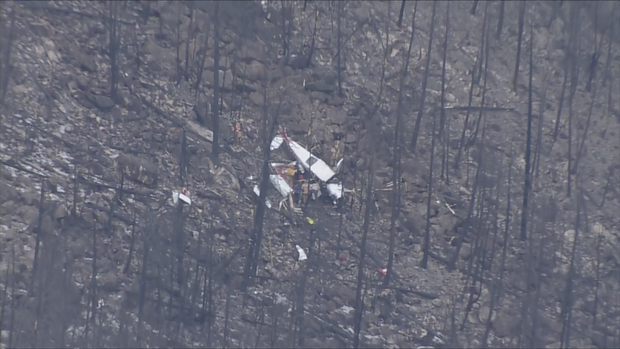CBS News
Election protection” activist says he plans to flag voters with “Hispanic-sounding” names as “suspicious
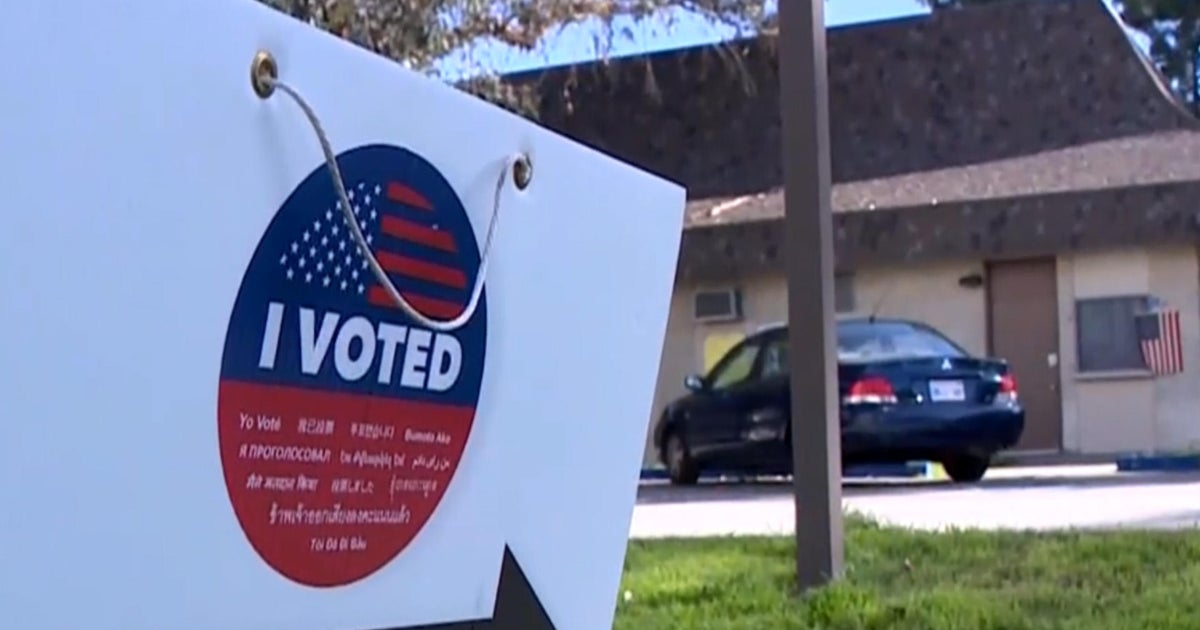
In a video obtained by CBS News, the leader of an “election protection” activist group of 1,800 volunteers in North Carolina is seen instructing attendees at a virtual meeting to flag voters with “Hispanic-sounding last names” as one way to identify potentially suspicious registrations as the group combs through voter rolls ahead of the 2024 election.
“If you’ve got folks that you, that were registered, and they’re missing information… and they were registered in the last 90 days before the election, and they’ve got Hispanic-sounding last names, that probably is, is a suspicious voter,” said James Womack, the leader of the effort, who chairs the Republican Party in Lee County, North Carolina. “It doesn’t mean they’re illegal. It just means they’re suspicious.”
Womack is the president and founder of the North Carolina Election Integrity Team, a group of self-described patriots dedicated to investigating the election for what they perceive as incidents of fraud in the pivotal presidential battleground state — where polls put the contest at a statistical tie between the Republican former President Donald Trump and Democratic Vice President Kamala Harris.
Womack describes his organization as comprised mostly of retirees working remotely from their computers to analyze public records related to voting. He says the group has a list of multiple factors they are using to flag suspicious voters, a task he believes is necessary because of flaws in how voter information has been collected in recent years.
North Carolina’s State Board of Elections maintains that its voter rolls are compliant under federal and state regulations.
But Womack alleges, “We have corrupt voter lists.” He says, “Citizens, individual citizens have a right to that information and they analyze that information to identify potential illegal or improperly registered people.”
His comments echoed a common theme being repeated by former President Trump and other Republican leaders on the 2024 campaign trail — that they suspect large numbers of undocumented immigrants intend to cast ballots. That claim is hotly disputed by immigration advocates and election officials of both parties around the country, who say no evidence has surfaced to support the notion that undocumented immigrants have ever attempted to vote in significant numbers.
Juan Proaño, the CEO of the League of United Latin American Citizens, told CBS News it defies logic to expect undocumented immigrants would take the risk of crossing the border and then place themselves in legal jeopardy by registering to vote and actually voting in an election.
“It’s very much a myth,” said Proaño,” but the campaigns have essentially used it as rhetoric, again, to try and suppress and intimidate the Latino vote.”
Jeff Loperfido, chief counsel of voting rights at the Southern Coalition for Social Justice, says targeting of individual voters based in part on whether their names sound Hispanic is “not surprising, considering so much of the rhetoric from one of our national parties is saying there is a massive influx of immigrants swinging elections.”
“It’s a distraction that is meant to scare people and depress turnout of legal voters,” said Loperfido, “and ultimately cause chaos and confusion around the outcome of the election.”
Womack says he is not targeting voters based on race and maintains that his group is following the law.
“Well, we’re all we’re empowered to do is what the law allows. And the law allows us to investigate,” he said “That’s, you know, exercising our rights under the law to investigate and make sure that no one else — no other legal citizens vote is diluted.”
Womack’s North Carolina organization is one of eight state-based groups under the umbrella of a broader national effort to “clean up” voter rolls called the Election Integrity Network, led by longtime GOP election attorney Cleta Mitchell. Mitchell participated in the infamous taped phone call after the 2020 election in which Trump asked Georgia’s secretary of state to find him 11,780 more votes.
Womack described Mitchell as the “matriarch” of the organization on an episode of Steve Bannon’s War Room podcast. Since then, he has been working with other activists to organize poll watching, investigate voter lists and challenge individual voters.
“We’ve got a big battle ahead of us and I am really grateful for all that you do,” Mitchell told Womack in a lengthy sit-down interview on the group’s website.
In an email to CBS, Mitchell described Womack as “a great patriot” and “the very essence of an American hero.”
Election activists and the RNC’s legal fight
Citizen activist groups have played a support role in some of the dozens of lawsuits challenging voter rolls in several key states.
In August, the Republican National Committee filed a lawsuit against the North Carolina State Board of Elections claiming there were more than 225,000 individuals on voter rolls who are potentially ineligible because they had not submitted mandatory voter registration information including Social Security numbers and driver’s license information.
The state board maintains that the rolls are properly maintained and individuals missing required information can still vote as long as they bring a voter ID or other authorized identification document.
Loperfido, whose organization analyzed the list of voters, told CBS News that the RNC’s list of potentially ineligible voters predominantly includes Black and Brown people, based on their analysis of the publicly available demographic information.
But the RNC says possible non-citizen voters on the rolls could dilute the votes of “legal” voters, and specifically cites a complaint by a “concerned citizen, Carol Snow,” to the Board of Elections in October 2023 as the basis for concerns with voter registrations in the state.
Snow, who described herself as an “election denier” in an email to CBS News, is a member of NC Audit Force, another group under the umbrella of Womack’s North Carolina team. At a meeting of fellow activists this April, Snow appeared alongside Womack and described herself as “a busybody,” in a video posted to YouTube.
“I’ll provide the oversight. If you are not going to do it, I will. This election system belongs to me,” she said.
Snow’s public records request for voter registrations lists became the basis for the RNC lawsuit alleging voters failed to provide federally mandated registration information. Snow had sought to identify voters whose registrations were missing Social Security or driver’s license information, which the complaint alleges could make them ineligible under federal voting rules.
An official with the RNC did not respond to CBS News when asked if they coordinated with Womack or Snow on any ongoing litigation.
Snow says she was contacted by the RNC only after the suit was filed, when she says an RNC attorney reached out to her to ask for any additional information. She said she declined to assist them.
Last week, a judge appointed by former President Trump threw out part of the RNC’s case, saying that state officials did comply with federal election law. The judge’s ruling noted that the National Voting Rights Act prevents states from systematically removing voters from the rolls within 90 days of an election.
Targeting “suspicious” voters
Though states are prohibited from systematically removing voters from the rolls ahead of November, self-described election integrity activists are still using public records of voters to target individuals they deem to be “suspicious.” Their goal, Womack said, is to be ready if there are names that can be challenged after votes are cast, but before the election is certified.
“There are a number of private organizations that are operating to analyze the voter list,” Womack said. “Individual citizens have a right to that information and they analyze that information to identify potential illegal or improperly registered people.”
In a video obtained by CBS News, Womack is seen describing a strategy to use publicly released voter registration lists to create his own “suspicious voter lists.”
“So we can create our ‘suspicious voters’ list for North Carolina. We are optimistic that we will have lists available for every county that— once the voting begins,” Womack said on a Zoom call in August 2024. “I certainly believe we can challenge people that vote on the list.”
Womack says he and his group are assembling county-by-county lists of potentially suspicious voters who can be challenged during the critical period between Election Day and certification. The investigation would include looking up voters’ home addresses, scouring property records, voter registration information and the date the person registered to vote.
Womack says the issue of non-citizen voters is not his top concern, but it is a factor when considering vulnerabilities in registration lists.
Womack told CBS News that a “Hispanic-sounding” last name was just one of many factors he would use in identifying suspicious voters. Other factors he cited may include missing voter registration information, if an individual voted absentee by mail, how recently the person registered to vote, and if they voted absentee.
“The Hispanic-sounding last name certainly is not exclusive,” he said in response to questions from CBS News. “We are trying to find every illegitimate voter and — and to challenge the ones that shouldn’t be voting.”
He cited “mispronunciations” and misspellings of Hispanic or Arab names as a reason they could be flagged.
“You look for natural mispronunciations or natural grammatical errors or punctuation problems,” he said. “And that way, you can do proper list maintenance. Now, among the Hispanics, I would say the same thing about the Arab population.”
“The idea that you combine those things and it equates to a suspicious voter is not true,” said Loperfido. “Anyone targeting voters based on that kind of analysis and hispanic last names, you are playing with fire”, he said, citing both state and federal laws that prohibit individuals from targeting voters on the basis of race.
Womack said that if he or his fellow volunteers believe a voter is ineligible, based on a variety of factors, they are prepared to challenge them at county elections boards across the state. Third-party individuals can challenge voters in person on Election Day or, if they voted by absentee ballot, up to five days after Election Day.
“If there’s a large-scale operation of voter fraud going on in North Carolina,” he said, “we could be very busy filing challenges all over the place.”
CBS News
Marta’s Orlando Pride defeat Washington Spirit for their first NWSL title

Barbra Banda scored in the 37th minute to give the Orlando Pride their first National Women’s Soccer League championship with a 1-0 victory over the Washington Spirit on Saturday night.
Banda dribbled into the right side of the box and made a move past a defender before kicking the ball on the ground with her left foot and past the goalkeeper. She became the first player in the NWSL to score in each round of the playoffs.
The Pride’s Angelina was nearly called for a push before passing it to Banda, but the VAR determined that the play was fair.
Kyle Rivas / Getty Images
The Spirit (20-7-2) controlled the game and outshot the Pride 25-9, had two more shots on goal and held onto possession 58% of the time. Rosemonde Kouassi had Washington’s best chance in the 47 minute when she headed a ball from about 10 yards away.
Orlando’s win gave Brazilian star Marta her first NWSL title. The 38-year-old Marta, considered arguably the greatest female soccer player of all time, joined the Orlando Pride in 2017 but had never reached an NWSL championship game until this year.
“(It’s a) magic moment for me because I’ve been in this club for so long and (to) wait for this moment, you know, so it’s… I’m just enjoy every single moment,” she told CBS News Friday ahead of the game. “…This year become like the best year in my club life.”
Top-seed Orlando (21-6-2) went unbeaten in its first 23 matches, a league record. They beat the Kansas City Current in the semifinals before hoisting the trophy at CPKC Stadium, their home field.
Orlando is the first team since 2019 to win the Shield and the title in the same year.
Washington had won its last five playoff games when trailing at the half, but that streak was broken with this loss.
CBS News
2 killed in U.S. Civil Air Patrol plane crash near Palisade Mountain in Northern Colorado

Two people were killed and a third was injured when a U.S. Civil Air Patrol plane crashed in Colorado’s Front Range Saturday morning.
The small passenger plane with three people aboard crashed near Storm Mountain and Palisade Mountain west of Loveland around 11:15 a.m., according to the Larimer County Sheriff’s Office. The plane belonged to the Civil Air Patrol, the civilian auxiliary wing of the U.S. Air Force, and was on a routine aerial photography training mission when it went down, officials said.
Pilot Susan Wolber and aerial photographer Jay Rhoten were identified by CAP as those killed and co-pilot Randall Settergren was identified as the person injured. Settergren was airlifted to an area hospital by a National Guard helicopter, where he is undergoing medical care.
CBS
“The volunteers of Civil Air Patrol are a valuable part of the Department of Military and Veterans Affairs, and the lifesaving work they do on a daily basis directly contributes to the public safety of Coloradans throughout the state,” Maj. Gen. Laura Clellan, adjutant general of the Colorado Department of Military and Veterans Affairs, said in a statement Saturday.
“We are devastated to hear of the loss of Susan Wolber and Jay Rhoten, and the injury of Randall Settergren, during a training mission in Larimer County. Our thoughts and deepest condolences are with the families of those involved in the crash,” Clellan continued. “I would also like to thank all of the first responders who assisted with rescue efforts.”
Palisade Mountain is in Larimer County, about 20 miles west of Loveland and about 65 miles northwest of Denver. The area is part of the burn scar of the Alexander Mountain Fire, which burned almost 10,000 acres in over two weeks this past summer.
The crash happened about 200 feet below the summit of Palisade Mountain in an area that includes tall trees and steep hills as part of the mountain range. Rescue crews were heard on radio traffic working to find a landing zone for rescue helicopters. No structures were impacted by the crash.
The plane crashed in “very rugged” and “extensive and rocky terrain,” Ali Adams, a Larimer County Sheriff’s Office spokeswoman, said at a news conference. First responders had to hike out to the site and the sole survivor was “severely injured” when responders finally got to them.
Rescue efforts were ongoing at 3:15 p.m., according to Adams, and recovery efforts for the two deceased people’s bodies could take several days.
Several agencies responded, including the Loveland Fire Rescue Authority, Thompson Valley EMS and the National Guard.
The Larimer County Sheriff’s Office is the lead agency investigating the crash and the Federal Aviation Administration and National Transportation Safety Board will assist, according to Adams. The NTSB said it too was investigating the crash and identified the plane as a Cessna 182.
“This is one of those incidents that is really low frequency; it doesn’t happen really often, but unfortunately, our first responders have had more than their fair share of responses,” Adams said.
George Solheim lives in the area of the crash. He described conditions as “extremely windy” on Saturday and heard the plane just prior to the crash. He says he could hear “loud ‘throttle up/down’ immediately prior to sudden silence at (the) time of (the) crash. Couldn’t hear sounds of impact from here.”
Colorado Gov. Jared Polis extended his sympathy to the families of the victims in a statement Saturday evening:
“I’m saddened to hear of the loss of two dedicated Civil Air Patrol members, Pilot Susan Wolber and aerial photographer Jay Rhoten, who lost their lives in today’s crash and my thoughts are with their families, friends and colleagues. These individuals, along with survivor co-pilot Randall Settergren, who was injured, served the Civil Air Patrol as volunteers who wanted to help make Colorado a better, safer place for all. The State of Colorado is grateful for their commitment to service and it will not be forgotten. I also want to thank the first responders who assisted with the rescue and recovery efforts.”
CBS News
Fred Harris, former Democratic U.S. senator and presidential candidate, dies at 94
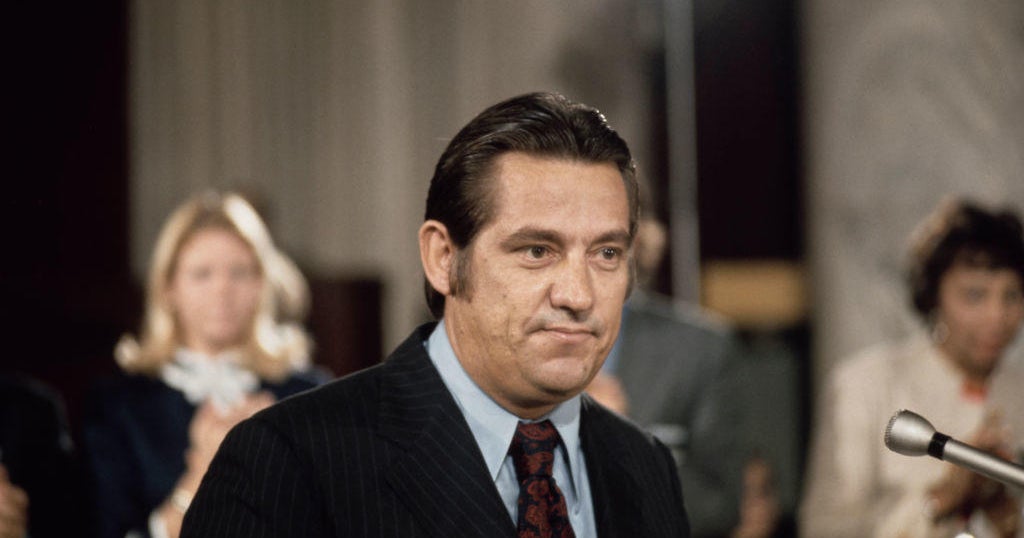
Fred Harris, a former U.S. senator from Oklahoma, presidential hopeful and populist who championed Democratic Party reforms in the turbulent 1960s, died Saturday. He was 94.
Harris’ wife, Margaret Elliston, confirmed his death to The Associated Press. He had lived in New Mexico since 1976.
“Fred Harris passed peacefully early this morning of natural causes. He was 94. He was a wonderful and beloved man. His memory is a blessing,” Elliston said in a text message.
Bettmann Archive/Getty Images
Harris served eight years in the Senate, first winning in 1964 to fill a vacancy, and made unsuccessful bid for the presidency in 1976.
“I am deeply saddened to learn of the passing of my longtime friend Fred Harris today,” Democratic New Mexico Gov. Michelle Lujan Grisham wrote in a post to social media. “Harris was a towering presence in politics and in academia, and his work over many decades improved New Mexico and the nation. He will be greatly missed.”
Democratic Sen. Martin Heinrich of New Mexico said in a statement that “New Mexico and our nation have lost a giant,” describing him as a “tireless champion of civil rights, tribal sovereignty and working families.”
It fell to Harris, as chairman of the Democratic National Committee in 1969 and 1970, to help heal the party’s wounds from the tumultuous national convention in 1968 when protesters and police clashed in Chicago.
He ushered in rule changes that led to more women and minorities as convention delegates and in leadership positions.
“I think it’s worked wonderfully,” Harris recalled in 2004, when he was a delegate to the Democratic National Convention in Boston. “It’s made the selection much more legitimate and democratic.”
“The Democratic Party was not democratic, and many of the delegations were pretty much boss-controlled or -dominated. And in the South, there was terrible discrimination against African Americans,” he said.
Harris ran unsuccessfully for the Democratic presidential nomination in 1976, quitting after poor showings in early contests, including a fourth-place win in New Hampshire. The more moderate Jimmy Carter went on to win the presidency.
Harris moved to New Mexico that year and became a political science professor at the University of New Mexico. He wrote and edited more than a dozen books, mostly on politics and Congress. In 1999 he broadened his writings with a mystery set in Depression-era Oklahoma.
Throughout his political career, Harris was a leading liberal voice for civil rights and anti-poverty programs to help minorities and the disadvantaged. Along with his first wife, LaDonna, a Comanche, he also was active in Native American issues.
“I’ve always called myself a populist or progressive,” Harris said in a 1998 interview. “I’m against concentrated power. I don’t like the power of money in politics. I think we ought to have programs for the middle class and working class.”
“Today ‘populism’ is often a dirty word because of how certain leaders wield power,” Heinrich said in his statement Saturday. “But Fred represented a different brand of populism — one that was never mean or exclusionary. Instead, Fred focused his work and attention on regular people who are often overlooked by the political class.”
Harris was a member of the National Advisory Commission on Civil Disorders, the so-called Kerner Commission, appointed by then-President Lyndon Johnson to investigate the urban riots of the late 1960s.
The commission’s groundbreaking report in 1968 declared, “our nation is moving toward two societies, one black, one white — separate and unequal.”
Thirty years later, Harris co-wrote a report that concluded the commission’s “prophecy has come to pass.”
“The rich are getting richer, the poor are getting poorer and minorities are suffering disproportionately,” said the report by Harris and Lynn A. Curtis, president of the Milton S. Eisenhower Foundation, which continued the work of the commission.
Norman Ornstein of the American Enterprise Institute said Harris rose to prominence in Congress as a “fiery populist.”
“That resonates with people…the notion of the average person against the elite,” Ornstein said. “Fred Harris had a real ability to articulate those concerns, particularly of the downtrodden.”
In 1968, Harris served as co-chairman of the presidential campaign of then-Vice President Hubert Humphrey. He and others pressed Humphrey to use the convention to break with Johnson on the Vietnam War. But Humphrey waited to do so until late in the campaign, and narrowly lost to Republican Richard Nixon.
“That was the worst year of my life, ’68. We had Dr. Martin Luther King killed. We had my Senate seatmate Robert Kennedy killed and then we had this terrible convention,” Harris said in 1996.
“I left the convention — because of the terrible disorders and the way they had been handled and the failure to adopt a new peace platform — really downhearted.”
After assuming the Democratic Party leadership post, Harris appointed commissions that recommended reforms in the procedures for selecting delegates and presidential nominees. While lauding the greater openness and diversity, he said there had been a side effect: “It’s much to the good. But the one result of it is that conventions today are ratifying conventions. So it’s hard to make them interesting.”
“My own thought is they ought to be shortened to a couple of days. But they are still worth having, I think, as a way to adopt a platform, as a kind of pep rally, as a way to get people together in a kind of coalition-building,” he said.
Harris was born Nov. 13, 1930, in a two-room farmhouse near Walters, in southwestern Oklahoma, about 15 miles from the Texas line. The home had no electricity, indoor toilet or running water.
At age 5 he was working on the farm and received 10 cents a day to drive a horse in circles to supply power for a hay bailer.
He worked part-time as a janitor and printer’s assistant to help for his education at University of Oklahoma. He earned a bachelor’s degree in 1952, majoring in political science and history. He received a law degree from the University of Oklahoma in 1954, and then moved to Lawton to practice.
In 1956, he won election to the Oklahoma state Senate and served for eight years. In 1964, he launched his career in national politics in the race to replace Sen. Robert S. Kerr, who died in January 1963.
Harris won the Democratic nomination in a runoff election against J. Howard Edmondson, who left the governorship to fill Kerr’s vacancy until the next election. In the general election, Harris defeated an Oklahoma sports legend — Charles “Bud” Wilkinson, who had coached OU football for 17 years.
Harris won a six-year term in 1966 but left the Senate in 1972 when there were doubts that he, as a left-leaning Democrat, could win reelection.
Harris married his high school sweetheart, LaDonna Vita Crawford, in 1949, and had three children, Kathryn, Byron and Laura. After the couple divorced, Harris married Margaret Elliston in 1983. A complete list of survivors was not immediately available Saturday.







